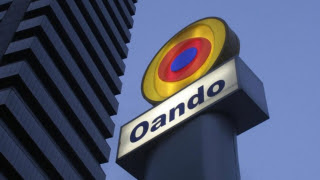Oando Plc, a major player in the downstream and upstream sectors of Nigeria’s hydrocarbon resources industry, is set to raise fresh funds over the next two years and repay debt associated with its acquisition of Conoco Phillips’ Nigerian assets.
The company a few years ago transformed from a fuel retailer to oil producer and now competes with oil multinationals such as Shell, Eni and ExxonMobil, but its growth has been built largely on debt.
Reuters quoted the company’s Managing Director, Wale Tinubu, as giving the hint about the company’s planned recapitalization move.
To leverage its corporate stake in the oil and gas sector, Oando Plc bought Conoco Phillips’ Nigerian assets for $1.5-billion in 2013, but since then high financing costs coupled with lower oil prices have adversely impacted its profit, leaving it unable to repay its debt.
The company posted losses in the past few years, including a record $1.10 billion loss in 2014.
But then, the management is doing its best to offset the company’s current debt liabilities.
For instance, Tinubu confirmed that the company had paid over 77 percent of the acquisition debt and plans to pay-off the rest in 12 months, which would allow it to resume dividend payments.
According to him, Oando’s growth plan is to continue to pursue acquisitions as multinational oil companies sell assets, adding that the management would take on new deals after paying down debt.
Tinubu stated in an email to Reuters that:“Our expectation is that over a four-year horizon we will no longer have long term debt.”
Only last Tuesday, Exxon Mobil said that it was considering the sale of its Nigerian oil and gas fields for up to $3-billion to focus on new developments in US shale and Guyana, industry and banking sources said.
Before now and specifically in 2016, the Central Bank of Nigeria (CBN) gave lenders a deadline to reach a deal to resolve Oando’s debt issue, leading to a N94.6 billion loan restructuring, including asset sales.
Last week Oando’s losses narrowed to N18.3 billion (about $59.8-million) for fiscal 2018 while its auditor Ernst & Young questioned its “going concern” status, saying that its current liabilities were in excess of its current assets.
Oando stated in a note to its 2018 accounts that it would reclassify some current liabilities as long-term liabilities to remedy its working capital by June and swap N27.5 billion of debt into equity.
The company also stated in the accounts that it planned to sell up to $200 million via a rights issue by October and cut its stake in its upstream unit to raise $275 million in 2020.
Tinubu said he was confident that with the capital raising initiatives and that over the next 24 months Oando would raise funds as plans were far advanced.






